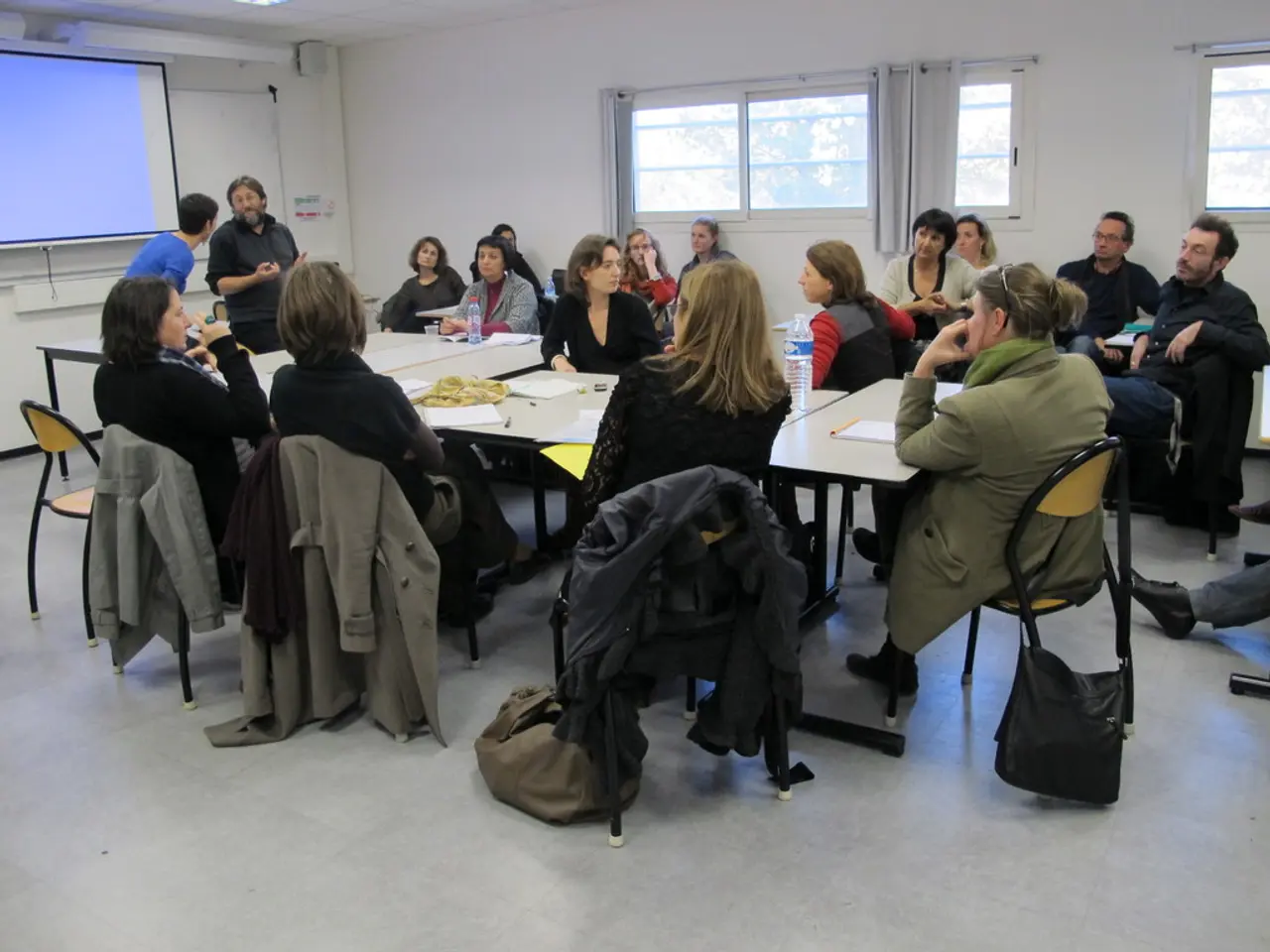Europe's Job Market Disruption by AI: The Need for a Social Agreement
In the age of artificial intelligence (AI), the European Union is taking a proactive approach to ensure that no one is left behind. Recognising the urgent need for action, a European AI Social Compact is being proposed, anchored in the next Multiannual Financial Framework.
The Compact aims to protect workers and support regions, as economic spillovers from the Recovery and Resilience Facility are estimated to amount to €345.5 billion, accounting for about 40 percent of its total impact. However, without strong EU-level instruments, the transformation to AI could be more disruptive, with its costs more unevenly distributed.
The move towards renationalising investment decisions during a period of rapid technological change would undermine the EU's ability to deliver timely and coordinated responses to AI-driven changes in the labour market. Strategic investments in AI infrastructure and foundational research are essential for the European Union to strengthen its competitiveness in the race for AI supremacy.
One key measure for a socially responsible AI transition is the design of a comprehensive social protection scheme for workers affected by AI-driven changes in the labour market. This includes reskilling efforts that promote the development of "hybrid intelligence" - broader competencies that are more resilient to future disruptions caused by AI.
The European Commission's current policy approach to AI is ill-equipped to anticipate the significant disruption to the labour market. The adoption of generative AI has dramatically accelerated the pace and scale of automation, leading to reduced hiring and shifting skill requirements within firms, as a 2022 study by Nobel laureate Daron Acemoglu and co-authors found. Dario Amodei, CEO of Anthropic, issued a stark warning that generative AI models could eliminate up to half of all entry-level white-collar jobs and push unemployment up by 10 to 20 percent within one to five years.
To address these challenges, the European Union is calling for a human-centric, ethical, and socially responsible AI framework. The proposed Compact includes four main pillars:
- Human-centric AI regulation grounded in ethical standards: The European Parliament and Commission have emphasised the need for a coherent, human-centric approach to AI development, embedding ethical principles such as transparency, fairness, non-discrimination, and societal well-being.
- Investment in reskilling and workforce adaptation: Integrating AI skill development and retraining programs into education and labor initiatives is crucial to prepare the workforce for changes in employment caused by AI automation.
- Social cohesion measures and shared responsibility: European policies advocate for a social compact that shares responsibility among governments, AI companies, and civil society. This includes commitments from AI firms to cooperatively share AI safety and alignment research, aiming to mitigate risks and foster trust.
- Support for a coordinated, multilateral AI governance framework: The EU aims to lead international cooperation efforts to govern AI responsibly, including plans for shared research infrastructures, pledges for AI safety research capacity, and proposals for global monitoring agencies to oversee AI development risks.
In conclusion, the European AI Social Compact proposals combine ethical AI governance, workforce reskilling, multistakeholder engagement, and international cooperation to address job displacement and preserve social cohesion amid rapid AI adoption. The Compact is a significant step towards ensuring that the benefits of AI are shared equitably across the EU, reducing economic disparities and promoting a more inclusive and resilient European economy.
- The European Union's proposed AI Social Compact, anchored in the next Multiannual Financial Framework, aims to protect workers and support regions during the digital transition, recognizing that the labor market will undergo significant changes necessitating skills development.
- To ensure a socially responsible AI transition within the European Union, a comprehensive social protection scheme for workers affected by AI-driven changes is essential, focusing on reskilling efforts for the development of "hybrid intelligence".
- Strategic investments in AI infrastructure and foundational research are crucial to maintaining the EU's competitiveness in the race for AI supremacy and mitigate potential disruptions caused by AI.
- Financing business and education-and-self-development initiatives that facilitate the adaptation of the labor market to AI automation will play a pivotal role in ensuring the general news that the benefits of AI are equitably distributed across the EU, reducing economic disparities and promoting social cohesion.




